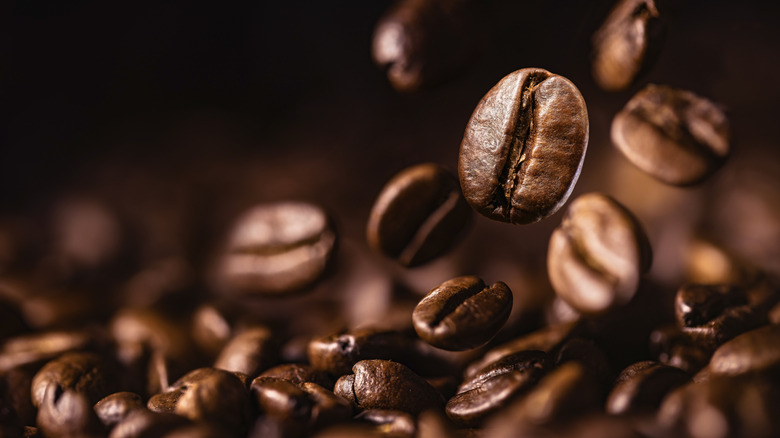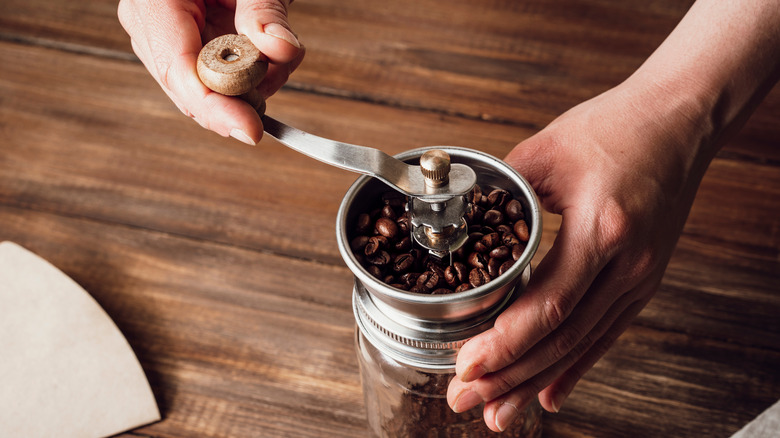The Scientific Reason Coffee Tastes Better From Freshly Ground Beans
When someone makes the choice to upgrade their daily cup of coffee, one of the first things that any amount of research will recommend is to start buying whole beans. Buying pre-ground coffee can be a great time saver and convenience, but whole-bean coffee always beats pre-ground in a matchup.
As Coffee Confidential points out, there are plenty of reasons why you shouldn't grind coffee too far in advance before brewing. The short version is that coffee immediately begins losing its flavor and aroma once more of it is exposed to air. The science behind it all is a little more complicated. Moisture and oxygen are the enemies of coffee's highly desired flavor. Once coffee is ground, about 60% of its aromas degrade after being exposed to oxygen for just 15 minutes. The oils that are responsible for these aromas and some of the more complex flavors in a cup of coffee are also water soluble. That means that excess moisture in the air can break them down easily. Once coffee beans are ground and more of the bean's surface area is exposed to oxygen and moisture, they break down more quickly. This is why even storing whole beans is a complex issue. Because of this, the National Coffee Association recommends buying smaller batches of coffee to use quickly as opposed to a larger batch.
Grinding coffee beans in advance causes 'off-gassing'
The other main reason that freshly ground coffee can't be beat is a process known as "off-gassing." According to Café Altura, off-gassing is the process of the coffee bean letting CO2, or carbon dioxide, gas into the air. This is a process that begins almost immediately after roasting. Within 24 hours of being roasted, a coffee bean will let off approximately 40% of its total CO2 before the process slows dramatically. MTPak Coffee says that it's actually important to let the bean let off these compounds, and says that many beans are actually at their peak flavor after about a week from roasting. As CO2 is let out though, oxygen takes its place and will degrade the flavor and aroma after a while.
The Takeout reports that when coffee beans are ground, this further speeds up the off-gassing process. Café Altura says that when coffee is stored as a whole bean, the CO2 seepage is relatively slow. This is because there is less surface area exposed to the air, and gasses are trapped inside until they're ground. Coffee Confidential says that within one minute of grinding a coffee bean, 80% of its CO2 will be let off. Café Altura relays that these gasses play a vital role in a coffee's first "bloom" of flavors and aromas. When coffee is ground days ahead of time, these valuable gasses have already been degraded by oxygen. This leaves you with a more bland cup of coffee.

